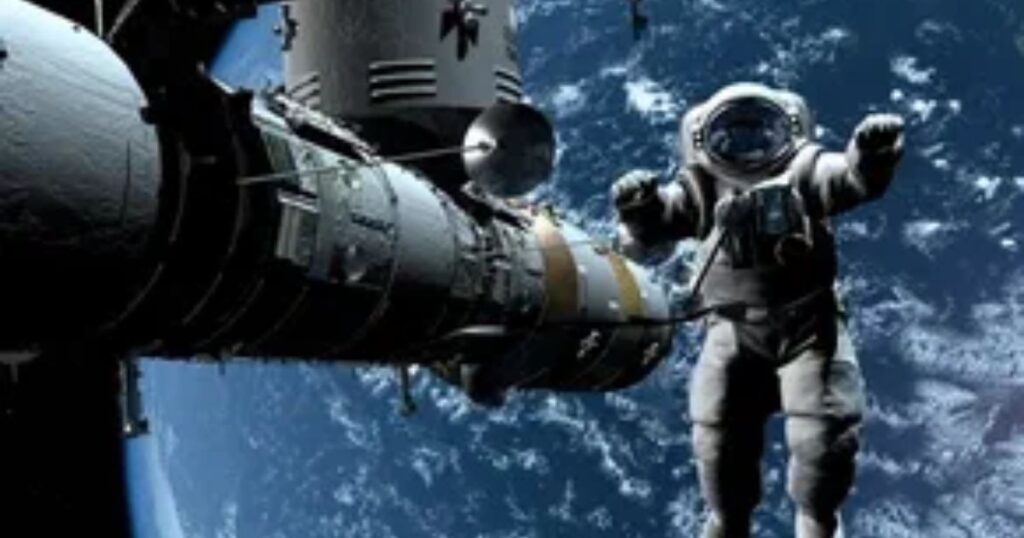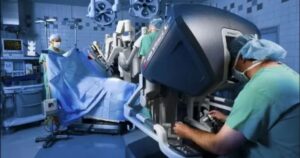Space exploration has always been a field that pushes the boundaries of human capability and technology.
With advancements in robotics the possibilities for space exploration have expanded significantly.The role of robotics is not limited to exploration.They also play a crucial part in maintaining and repairing satellites or space stations and other infrastructure in space.
The future of robotics in space is not just a continuation of current practices but a leap toward new horizons that were once thought to be unreachable.
What is the Role of Robotics in Space Exploration?
The role of robotics in space exploration has been pivotal.The vastness of space and the harsh environments of other planets make human exploration challenging and often impossible.The use of robots in space exploration allows for the execution of missions that would otherwise be too risky for humans. Robots like the Mars rovers have been instrumental in gathering data from distant planets or providing insights that have shaped our understanding of the universe.
These machines can operate in extreme conditions collecting samples or performing experiments and sending valuable data back to Earth.

What Will Be the Future of Space Exploration?
The future of space exploration is filled with exciting prospects with robotics playing a central role. As space agencies like NASA ESA and private companies like SpaceX continue to push the envelope.The focus is increasingly on long-duration missions returning humans to the Moon and eventually sending crewed missions to Mars.
Robotics will be essential in preparing these missions from scouting landing sites to constructing habitats and even performing maintenance tasks. The future will also see more autonomous robots that can make decisions on their own or reduce the need for constant communication with Earth which is often delayed by vast distances. This autonomy will allow for more efficient and effective exploration of distant worlds.
What Will Be the Future of Robotics?
The future of robotics both on Earth and in space is one of rapid advancement and increasing sophistication. Robotics technology is evolving at an unprecedented rate with advancements in artificial intelligence or machine learning and materials science. In the coming years robots will become more autonomous capable of learning from their environments and making decisions without human intervention.
This will be particularly important in space exploration where communication delays can hinder the effectiveness of missions. The development of more sophisticated robotic systems will allow for more complex tasks to be performed such as the construction of habitats on other planets or mining of asteroids for resources and even the establishment of permanent colonies in space.

What is the Future of Robotics in 2030?
By 2030 robotics in space exploration is expected to reach new heights. The development of robots that can work alongside humans will be a key focus.These collaborative robots or “cobots” will assist astronauts in performing tasks that are too dangerous or complex for humans alone.
To collaboration 2030 will likely see the deployment of more advanced robotic explorers that can operate independently for extended periods.These robots will be able to adapt to new environments or repair themselves and even modify their behavior based on the challenges they encounter. The future of robotics in 2030 will be characterized by greater autonomy or versatility and the ability to operate in environments that are currently beyond our reach.

Advancements in Autonomous Robotic Systems
The advancement of autonomous robotic systems is a critical area of development for the future of space exploration. These systems are designed to function independently making decisions based on their programming and the data they collect. In space where communication with Earth can take minutes or even hours or autonomy is crucial.
Robots must be able to navigate unknown terrains or avoid obstacles and perform tasks without direct human intervention. Future autonomous robots will be equipped with advanced sensors or AI driven decision making capabilities and the ability to learn from their experiences. This will make them invaluable tools for exploring distant planets or moons and asteroids.
The Role of AI in Space Robotics
Artificial intelligence (AI) will play an increasingly important role in the development of space robotics. AI allows robots to process vast amounts of data quickly and make decisions based on that data. In the context of space exploration AI can help robots identify areas of interest or prioritize tasks and even predict potential hazards.
This level of intelligence will be essential for missions that involve exploring uncharted territories or performing complex tasks like building structures on other planets. As AI continues to evolve it will enable robots to operate more independently and efficiently reducing the need for human oversight and increasing the scope of what can be achieved in space.
Collaborative Robots in Space
Collaborative robots or cobots are designed to work alongside humans enhancing their capabilities and making complex tasks more manageable. In space exploration robots will be essential for tasks that require both human intuition and robotic precision.The cobots could assist astronauts in assembling large structures in space or performing repairs on spacecraft, or conducting experiments in microgravity.
These robots will be designed to operate safely around humans with advanced sensors and AI systems that allow them to respond to human commands and adapt to changing situations. The development of cobots will open up new possibilities for human robot collaboration in space.
The Importance of Robotics in Deep Space Missions
Deep space missions aimed at exploring distant planets or moons and asteroids will rely heavily on robotics. The vast distances involved in these missions make it impractical for humans to travel to these destinations at least in the near future. Robots can be sent to these far off places to gather data or conduct experiments and even search for signs of life.
These missions will require robots that are highly autonomous or capable of operating for long periods without human intervention and able to withstand the harsh conditions of deep space. The development of such robots will be a key focus for space agencies and private companies alike.
Robotics and the Construction of Space Habitats
One of the most exciting prospects for robotics in space exploration is their potential role in the construction of space habitats. As humanity looks to establish a permanent presence on the Moon Mars and beyond robots will be essential for building the necessary infrastructure.
Robots can be used to assemble habitats or construct landing pads and even build roads and other infrastructure. They can work in environments that are too dangerous for humans and can operate continuously without the need for rest. The ability to construct habitats on other planets will be a major step forward in space exploration enabling longer missions and eventually the establishment of permanent colonies.
Mining Resources in Space with Robotics
The mining of resources in space is another area where robotics will play a crucial role. Asteroids or moons and even other planets contain valuable resources that could be used to support space missions or be brought back to Earth. Mining these resources however is a complex and dangerous task that is well suited to robotics.
Robots can be designed to extract minerals or metals and other resources from these celestial bodies processing them on site or transporting them back to a processing facility. The development of robotic mining systems will be essential for the future of space exploration providing the materials needed for construction fuel and other essential supplies.
The Role of Robotics in Satellite Maintenance and Repair
Satellites are essential for communication or navigation or weather monitoring and many other aspects of modern life. Maintaining and repairing these satellites is a challenging task that often requires sending astronauts into space. In the future robotics will play an increasingly important role in satellite maintenance and repair.
Robots can be designed to perform tasks replacing damaged components or refueling satellites and even upgrading their systems. This will not only extend the lifespan of satellites but also reduce the need for costly and risky manned missions. The development of robotic systems for satellite maintenance will be a key focus for space agencies and private companies in the coming years.
The Ethical Considerations of Robotics in Space Exploration
As robotics plays a more prominent role in space exploration it is important to consider the ethical implications of this technology. The use of autonomous robots raises questions about accountability decision making and the potential impact on human jobs.
For example if a robot makes a decision that leads to the loss of valuable data or the failure of a mission or who is responsible.The increasing use of robotics in space could reduce the need for human astronauts potentially impacting the future of human space exploration. These ethical considerations will need to be addressed as robotics continues to evolve and become more integrated into space exploration efforts.
The Challenges of Developing Space Robotics
The development of robotics for space exploration presents numerous challenges. One of the main challenges is the harsh environment of space which includes extreme temperatures or radiation and microgravity. Robots must be designed to withstand these conditions performing complex tasks.
The vast distances involved in space exploration mean that robots must be highly autonomous capable of operating for long periods without human intervention. Communication delays can make it difficult to control robots in real time or require them to make decisions on their own. The development of space robotics will require continued advancements in materials science or artificial intelligence and engineering to overcome these challenges.
The Future of Human Robot Collaboration in Space
The future of space exploration will likely involve a combination of human and robotic efforts. As robots become more advanced they will be able to take on more complex tasks allowing humans to focus on areas where human intuition and creativity are needed. For example robots could handle the construction and maintenance of space habitats humans conduct scientific research and exploration.
This collaboration will allow for more ambitious missions establishing a permanent presence on the Moon or Mars. The future of human robot collaboration in space will be one of mutual support with each contributing their unique strengths to achieve common goals.
Conclusion
The future prospects for robotics in space exploration are both exciting and challenging. The advancements in robotics technology combined with the growing interest in space exploration will lead to new opportunities and possibilities.Robots will continue to play a crucial role in exploring distant worlds or maintaining space infrastructure and even constructing habitats on other planets. As we look to the future.The collaboration between humans and robots will be key to achieving our goals in space.The integration of AI autonomous systems and advanced robotics will pave the way for more ambitious and successful space missions ultimately expanding our understanding of the universe and our place within it.
FAQs
What are the main roles of robots in space exploration?
The main roles of robots in space exploration are gathering data from distant planets or maintaining and repairing satellites and space stations and performing tasks
How will AI impact the future of space robotics?
AI will enable robots to process vast amounts of data quickly or make decisions autonomously and adapt to new environments making space exploration more efficient and effective.
What challenges do space robots face?
Space robots face challenges such as extreme temperatures or radiation and microgravity.They must also be highly autonomous due to communication delays with Earth.
Will robots replace humans in space exploration?
The robots will play an increasingly important role.They are unlikely to replace humans entirely. Instead robots and humans will collaborate with each complementing the other strengths.

Welcome to our robotics technology hub I’m Evan Clark, your guide to the latest innovations and advancements in the world of robotics.












